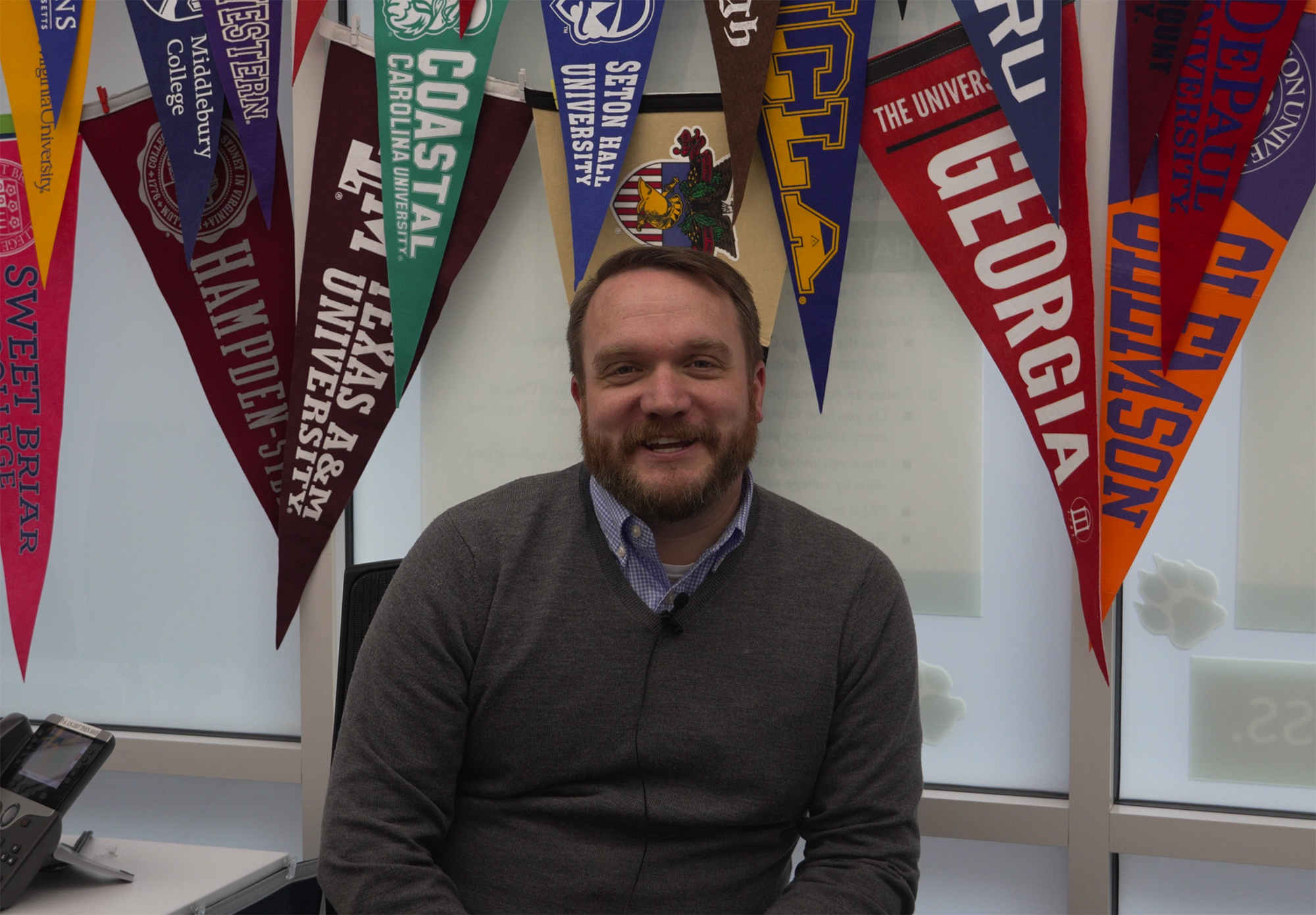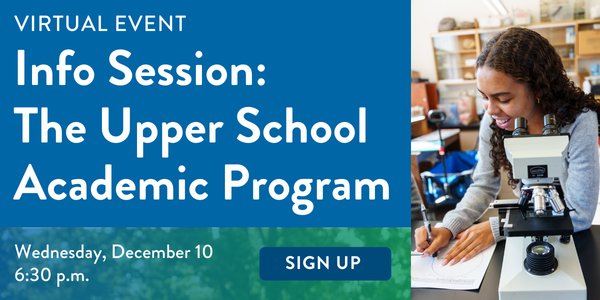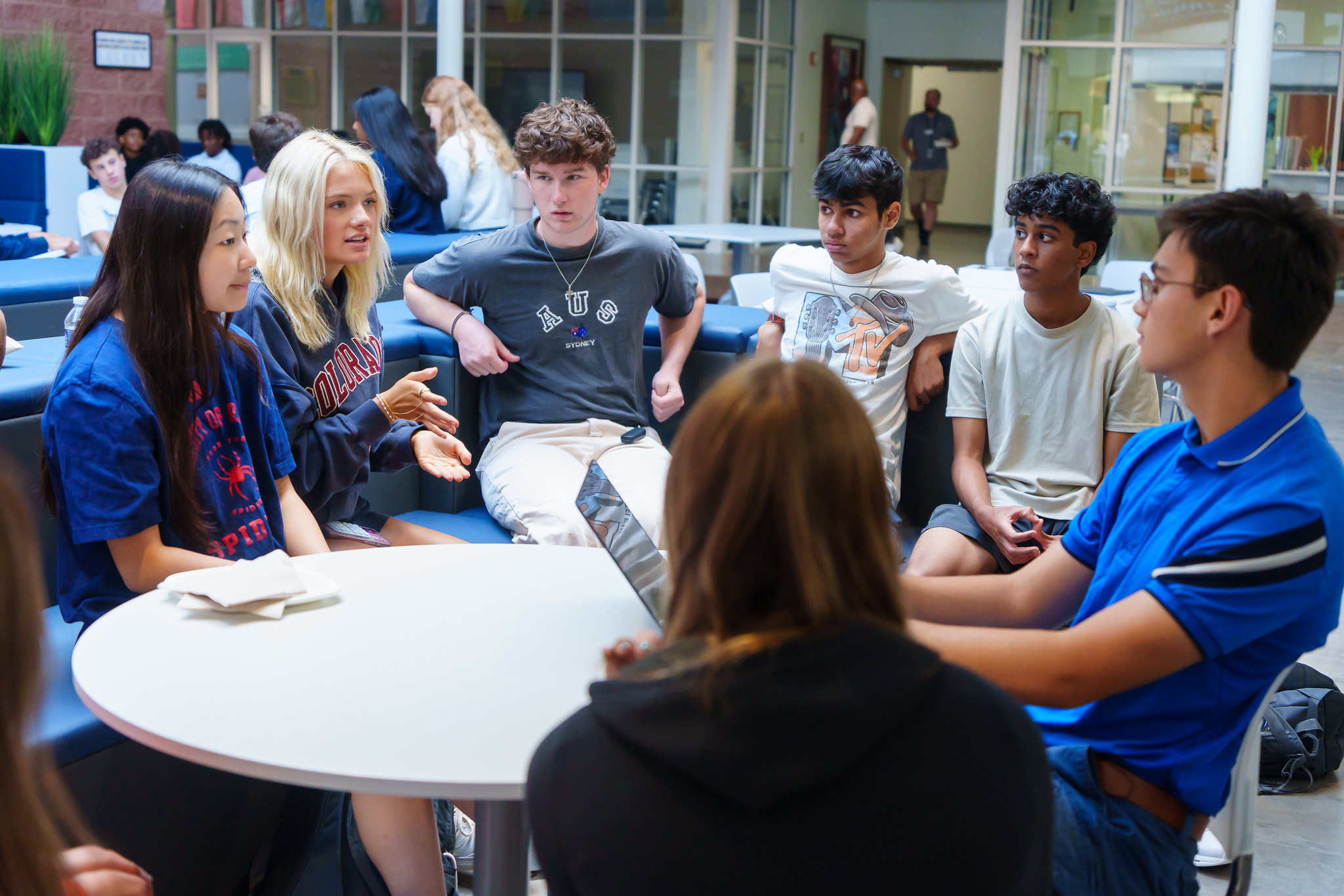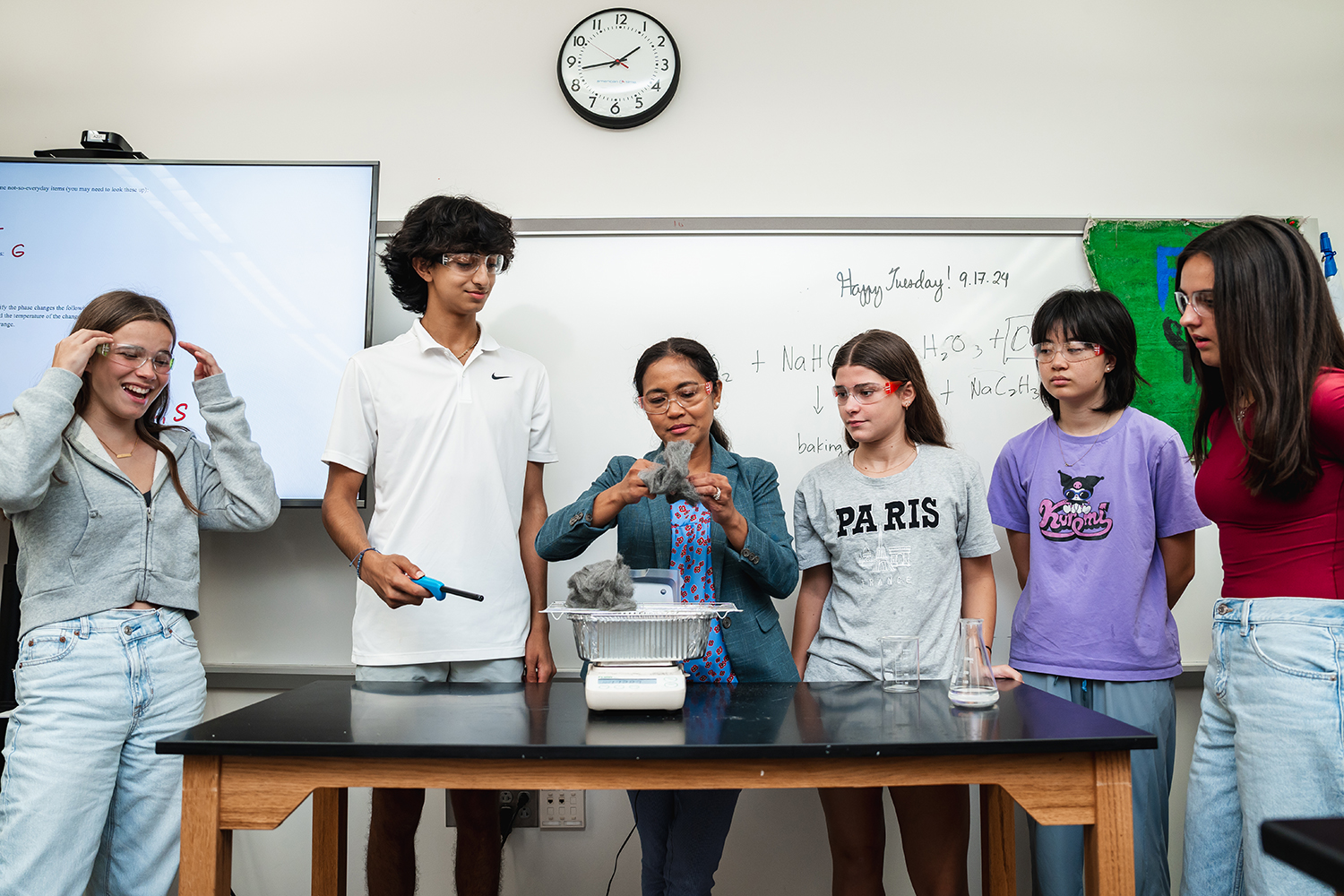HUSKY HIGHLIGHTS

January 16, 2025
By Andrew Kane, Freshman Class Dean and Associate Director of College Advising
Seven Things You Need to Know Before Your Student Starts 9th Grade
As a parent of a soon-to-be 9th grade student, you might be wondering how to prepare for this big transition in your teenager’s life. We asked Freshman Class Dean Andrew Kane what he wished parents knew before their students started high school. Here are seven key pieces of advice he gave us.
Watch the video (6 minutes) or read the summary below.
1. Most students need more structure than you might think.
Parents might be a little surprised to see that their students might need more structure when it comes to their approach to school than we needed 10 or 15 years ago, or even longer.
The students’ days can get very busy with their academics and extracurriculars.. You as their parent can be a great resource in helping them plan things out. Ask them, “When are you going to get your homework finished? How late is your game going tonight? What do you have going on this weekend? How does Science Olympiad align with your upcoming assessment schedule?”
The resources you as the parent can provide when it comes to building that structure, it can be incredibly valuable to helping build a strong foundation for the start of their Upper School experience.
2. Help them focus and avoid distractions. Put away their phone.
One of the biggest challenges any Upper School student faces, and frankly, we as adults face, are the distractions our devices can provide. Minimizing those distractions can be essential to student success.
Many times I have conversations with students where they'll say something along the lines of, “My homework took me three hours to get finished last night! My first question is always, “How much of that time was actually working on your homework, and how much of it was hopping on your texts real fast to add something to the text chain, or laughing at a funny meme your friend said.
And so minimize those distractions, take the phone away, put it somewhere else. Because even when they're not looking at it, the idea that it's there, in their pocket or on the table, can still be distracting to them. Let’s help them focus on the work that they need to do, and then take the time to have some fun or text a friend.
3. Plan, but be ready for changes.
Many students and families start their time in the Upper School with a plan in mind, whether it's what classes they're going to take, what activities they're going to do, or even certain goals they have throughout their four years and beyond. That's great. Having a plan can be incredibly valuable. As I mentioned, structure for an Upper School student can be a great resource.
At the same time, I would encourage every parent to encourage their students to be open to change. They might take a class for fun as a 9th grader that suddenly becomes a true passion for them. That might impact something else that was initially “part of the plan.” And so it's really important to be open to how their experience might change, how they might grow, how they might learn new things about themselves and lean into those changes.
4. Choose courses thoughtfully.
When it comes to course selection, parents and students often have many questions. What's the right path for them? Should they take a particular class? And my advice to every student and family is to be thoughtful about your approach.
Every single student, every year, is thinking about what they're going to be doing next. But it's really important to think about what's best for the student as a learner. They shouldn’t focus on what friends might be doing. It’s about academic growth and challenging yourself. Where do their academic interests lie, and how do they want to explore those more deeply while also taking meaningful risks. What’s something that they didn't think was going to be an area of interest academically and should they explore that further? There's many opportunities within our program to do that, particularly as students make their way into their upper level classes.
And so it's really important to make use of the resources that we have available to you, from your advisor, to our Upper School assistant director and academic dean, to the College Advising team and everyone else. There's a lot of incredible resources here to help you make those thoughtful, thorough choices in that academic calendar.
5. Cultivate relationships with teachers.
One of the most important things you can do as a parent is to encourage your child to make connections with their teachers, ask questions, and build relationships. Sometimes, particularly for 9th grade students, they can be a little nervous going to a teacher when they have a question or seeking them out during our office hours.
But those relationships are essential to our experience here at Flint Hill. I would really encourage you to talk to your student if they're having a challenge in the classroom, or if they're just not sure of something, to make use of the resources we have there.
As a parent myself, I know it's always easy to want to swoop in and ask the questions on behalf of your child, but allowing them to build those relationships, to strengthen their ties to this community, is incredibly valuable and ultimately will build essential foundational pieces for their overall academic experience.
6. Build communication skills.
We always encourage our Upper School students to be the first point of contact with their teachers when they have questions or they're wondering about something. Obviously, when it comes to parent interactions, we also support those connections. However, you should push your child to initiate a conversation. And then if there are further questions or you need more clarification, of course, please reach out to those teachers.
At the end of the day, we're teaching our young people to be independent learners. And so it's essential for them to initiate that contact and really grow in comfort when it comes to communicating with their teachers and connecting with the various adults within our community.
7. Give your student space to take meaningful risks.
Try to give your child the courage and the space to take meaningful risks, even if that might mean they could fail in the attempt. There are so many opportunities inside and outside of the classroom for our students here. They can explore new academic areas, start a club, go out for a team they've never gone out for before. Sometimes a student might be a little reticent in case they don't get the success that they're initially hoping for. But there's so much learning and growth that can go into those obstacles and challenges.
If you're willing as their parent to encourage them to lean into those opportunities, to really go for it, no matter what the result might be, that teaches students to really know what it means to put themselves out there and explore what is meaningful to them.
Andrew Kane is the Freshman Class Dean and Associate Director of College Advising at Flint Hill School. He holds a bachelor’s degree from Georgetown University and a master’s degree in education from the University of Virginia.
LEARN MORE ABOUT FLINT HILL
Fill out the form to receive updates from our team.
RECOMMENDED FOR YOU
For students, a sense of connection with others and belonging to a community benefits every aspect of their health, improves family relationships, reduces risk-taking behaviors,...
The careers our youngest Huskies will someday pursue may not even exist yet. But what will always matter are the human skills that endure: creativity,...
Our Upper School Team shares information about students in grades 9-12 at Flint Hill can become leaders.
To cultivate young scientists with strong logic and reasoning, our new chemistry and biology courses make science relevant by combining advanced topics with student-driven interests.







